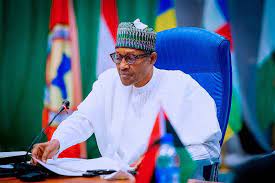
Stakeholders in the nation’s maritime and transport industry have raised concerns and expressed disappointment over the failure of President Muhammadu Buhari to give assent to the all-important National Transport Commission (NTC) bill during his eight years tenure.
The NTC bill which was first sponsored in 2008 has failed to scale through hurdles since then. Recall that in late 2018, the President declined to assent to the bill which the Senate passed in March.
The President had cited the need to review certain provisions in the bill, as well as concerns over the duplication of functions which already fell within the statutory mandates of the Nigerian Maritime Administration and Safety Agency (NIMASA) and the Nigerian Ports Authority (NPA)
Also, on 23 January 2019, the Senate passed the Conference Committee Report of the NTC Bill and formally re-approved the bill after being examined in view of the President’s observation.
The Bill seeks to establish the National Transport Commission as an economic regulator of all activities undertaken in Nigeria’s transport sector.
The NTC, which is set to replace the NSC, would operate as an independent regulator to promote multimodal transport and boost private sector participation in the provision of transport services.
Reacting to the failure of the President to give assent to the bill, Prof. Bamidele Badejo of the Olabisi Onabanjo University (OOU) in Ogun state and former Commissioner of Transportation, Lagos State, expressed his disappointment over the failure to get the bill assented to.
In a chat with our correspondent, Prof Badejo noted that some group of people actually worked against the bill being, this is even as he said the President was not well briefed on the importance of the bill.
He said: “The essence of the NTC is to achieve the fundamental objective of transport integration and that objective is that all the whole sub-transport, the way they are now they are not properly motivated, so there is a need for all the means of transport to be situated under one umbrella and that umbrella is the proposed NTC
“This NTC bill has been a very serious contentious issue, a lot of people are actually working against it even though it has been passed at the National Assembly level, I think the President has not been well-briefed about the implications and essence of the NTC
Explaining the Bill, he said: “You know under the NTC bill, Aviation, Railway, Waterways, Pipelines and all of them would be under one umbrella and you know NNPC and other oil conglomerates are principally responsible for the development and precisions of pipelines and if you also look at the Aviation there’s a full fledge ministry of Aviation; meaning that they could be matched and the Federal Ministry of Transportation is also there coordinating only Water transportation and Railways, whereas the Federal Ministry of Works and Housing is also in charge for the provision of transport infrastructure. It looks as if they are bringing four or five powerful institutions under one umbrella”.
“I’m of the opinion that if a bill is sent to the President three times and he does not sign it automatically it becomes a law, but my own question is how do we implement such a law?” he said.
Speaking also, the President of the Chartered Institute of Transport Administration (CIoTA) Prince Segun Obayendo in a chat with our correspondent expressed disappointment over the failure to get the NTC assented to. He said the NTC is one of the issues that will be put on the front burner of the incoming administration.
“We must put it on the front burner of the new administration. Let’s address areas of concern of the outgoing administration. With thorough advocacy by all stakeholders including the Chartered Institute of Transport Administration, we will get it passed. If passed our Country will enjoy a clear harmonious direction in the Transportation sector among other things, the NTC would be responsible for creating equitable access to transport services; and regulating the tariffs, rates and charges paid by transport service users” he said.
Also speaking Dr. Chris Ebare, President of the Institute of Chartered Shipbrokers (ICS) lamented that it is unfortunate that the outgoing administration was been able to implement the beautiful project before leaving office. He however said he hopes the incoming administration will look into it.
However, on his part, Dr. Obiora Madu Director General of the African Centre for Supply Chain and President of the Association of Outsourcing Professionals (AOPN) opined that the country does not need the NTC but a logistic policy that will encompass the whole transport sector. He said the transport sector is only one leg of the logistics sector.
“First of all, what is the need for NTC? As far as I’m concerned what we need is a National Logistic Policy, because this comparison is what is causing us a big problem, because while other parts of the world are integrating as well as applying supply chain, we are still talking transport, transport is only one leg of logistics; transport is the components of the chain of supply chain and supply chain is what rules the world now, even for the private and public sector, so if you say transport then everything will remain on the road and the rest of them.
“First of all we used to have a mega Ministry of Transportation. Now we have Aviation, maybe we should also have Maritime, I think we should also have roads. The Ministry of Road. Now the number of ministries we will need to have all of these can come under the logistics policy commission” he said.
Follow us on Facebook/ twitter















